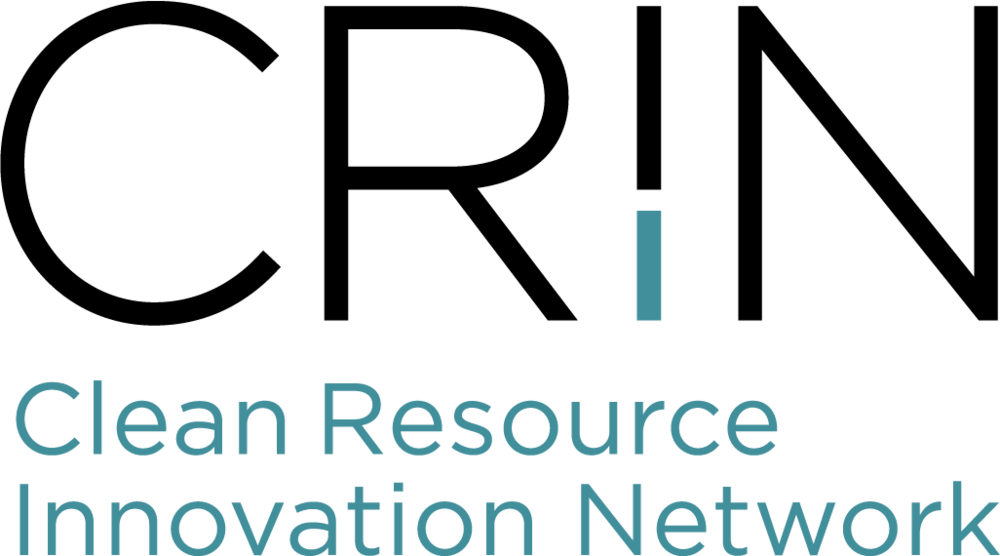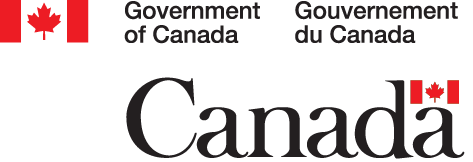CRIN: Low Emission Fuels and Products Competition
The Low Emission Fuels and Products Competition sought to identify and accelerate the most promising technology solutions for developing low-emission fuels and products.
Challenge Launch: February 2021
Embracing Innovation to Create New Low-Emission Fuels and Products
The Low Emission Fuels and Products Competition, sponsored by the Clean Resource Innovation Network (CRIN), sought to identify and accelerate the most promising technology solutions for developing low-emission fuels and products.
With a substantial prize pool of $30M distributed across winners, the cumulative GHG emissions reduction is estimated at 55 megatonnes of CO2e, contributing significantly to CRIN’s target of 100 MT CO2e by 2033.
Read more about this Challenge below.
The Opportunity
This Challenge has on four project focus areas that aimed to propel the development and deployment of low-emission technologies.
1. Innovative Products from Hydrocarbons: Technologies aimed to produce carbon-based non-combustion products, such as activated carbon, carbon fiber, and asphalt binder from petroleum and natural gas, as well as recover valuable elements like lithium and vanadium from co-produced hydrocarbons.
2. Carbon Capture and Utilization: Technologies that capture, utilize, and convert carbon dioxide to reduce greenhouse gas emissions.
3. Hydrogen and Geothermal: Technologies aimed at developing clean energy from hydrocarbon-derived hydrogen and optimizing geothermal energy recovery for the oil and gas industry.
4. Low Carbon-Intensity Alternatives and New Fuels: Innovations focused on reducing the carbon intensity of fuels, including biogenic feedstocks, waste products, and novel production processes.
Background & Considerations
Project teams were required to include a small or medium-size enterprise (SME) technology solution developer working in partnership with at least one oil and gas producer to demonstrate vital collaboration, industry investment, and technical expertise and facilities or sites that are necessary to scale innovation for commercialization.
While emission reductions and other environmental benefits are key priorities, CRIN competitions also highlight economic and public benefits that investment in innovation provides for Canada.
Each project contributes to job and business creation, increased competitiveness in the global market, development of a highly skilled workforce, knowledge sharing and ecosystem development, improved health and safety, or other benefits for Canada.
The Partners
The Clean Resource Innovation Network (CRIN) is a pan-Canadian network focused on ensuring Canada’s hydrocarbon resources are sustainably developed and integrated into the global energy systems.
CRIN, as a ‘network of networks,’ connects a vast array of skills, knowledge and experience from oil and gas and other industries to technology developers, researchers, government, investors, academia, entrepreneurs, youth, and many other sectors. By identifying industry challenges, they create a market pull to accelerate commercialization and widespread clean technology adoption with environmental, economic, and public benefits for Canada.
CRIN is supported in part by a $100 million CAD investment from the Government of Canada’s Strategic Innovation Fund.
Strategic Innovation Fund (SIF) supports national innovation ecosystems, pan-Canadian network-led projects that involve a high degree of collaboration to stimulate innovation and commercialization in areas of Canadian advantage and enhance linkages between businesses and academia/research bodies.
"CRIN is extremely pleased to support these projects that will deliver real results toward environmental targets including greenhouse gas (GHG) emission reductions to help achieve Canada’s net-zero targets.
We applaud the collaborative partnerships and investments that allow knowledge to be shared across the oil and gas innovation ecosystem to deliver a sustainable energy future for Canadians."
The Challenge Winners
CRIN announced four projects identified for funding through this Challenges aimed at accelerating solutions that have the potential to contribute significantly to achieving Canada’s 2050 climate targets and position Canada as a global leader in clean, sustainable, diverse energy systems. At total of $30,365,000 was awarded to the winning companies.
Project One
Winner: Ekona Power
This project entails the pilot deployment of Ekona’s pulsed-methane pyrolysis (PMP) solution which converts feedstock methane into hydrogen and solid carbon, virtually eliminating CO2 emissions. It produces hydrogen at a cost on par with incumbent steam methane reformers (SMR), while reducing greenhouse gas emissions by 90 per cent.
Tech Developer and Industry Partners:
- Cenovus Energy Inc.
- Trans Alta.
Estimated Emission Reduction: 35.10MT
Funding From CRIN: $8,000,000
Project Two
Winner: Enerkem Inc.
This Project will demonstrate the production of low-carbon intensity renewable diesel by scaling up and integrating INFRA’s Fischer Tropsch technology with Enerkem’s carbon recycling technology, and obtain pre-commercial quantities of light synthetic oil (LSO) which can be used directly as a renewable blend-stock for diesel fuel.
It is expected that a commercial implementation would reduce carbon emissions by over 230,000 tonnes per year, mitigating over 4.6 million tonnes of CO2 equivalent over the 20-year lifetime of the project.
Tech Developer + Industry Partners:
- Suncor Energy
- Infra Synthetic Fuels Inc.
Estimated Emission Reduction: 3.34MT
Funding From CRIN: $5,528,758
Project Three
Winner: KWI Polymers Inc.
KWI’s low-cost plasma-based natural gas pyrolysis technology decomposes natural gas into hydrogen and value-added solid carbon. Approximately 8,200 tonnes per day of hydrogen is currently produced in Canada, resulting in 27 MtCO2e/yr or 4 per cent of Canada’s annual GHG emissions.
KWI’s technology can materially reduce these emissions by providing a low cost, low GHG alternative, especially where CO2 storage isn’t available.
Tech Developer and Industry Partner:
- Suncor Energy
Estimated Emission Reduction: 13.77MT
Funding From CRIN: $10,000,000
Project Four
Winner: Canadian Natural Resources Limited (CNRL)
While much work has begun to decarbonise the sector, significant challenges are still ahead.
CNRL’s Molten Carbonate Fuel Cell demonstration pilot can be configured to capture CO2 from flue gases while generating electricity at the same time, making it lower cost than solvent-based CO2 capture.
The pilot will produce a 99.5 per cent purity CO2 product stream and will be designed to capture up to 90 per cent of the CO2 in the flue gas being treated, at 8kt CO2 per year.
Tech Developer and Industry Partner:
- FuelCell Energy (through its wholly owned Canadian subsidiary, Versa Power Systems)
- Canadian Natural
- Cenovus Energy Inc.
- Chevron Canada
- COSIA
- Emissions Reduction Alberta
- Suncor Energy
- Shell Canada
Estimated Emission Reduction: 3.22MT
Funding From CRIN: $6,836,708
Updates
July 2024: Emissions Reduction & Job Creation
The cumulative GHG emissions reduction for the four projects is estimated at 55 megatonnes of CO2e, contributing significantly to CRIN’s target of 100 MT CO2e by 2033. Additionally, the projects are expected to generate over 2100 direct and indirect jobs by 2024.
February 2022: Winners Announced
After a rigorous evaluation process, the following companies were selected to participate in the construction of four pilot houses at Kanaka Bar:
FORM Innovations: insulated and strong polyurethane concrete form that is highly water and fire resistant
Artspan: structural insulated steel panels that provide a durable building shell that is mold, fire, and rodent resistant
ZS2 Technologies: prefabricated, structurally insulated panels that are low carbon and fire resistant
February 2021: Challenge Launches
"As we work to reduce our greenhouse gas emission and met our ambitious climate targets, collaborating with the oil and gas industry to foster innovation within their sector is essential.
The projects identified through the CRIN Low Emissions Fuels & Products Technology Competition can accelerate clean solutions and lead the way on how we can create jobs, build a healthier environment and grow our economy at the same time."
Our Partners
Find Market-Ready Innovation without the Risk
We connect industry with the world's best clean technologies. From agriculture to water to oil and gas, our Challenge program works to connect end-users with cleantech solutions to overcome sustainability and operational hurdles.




